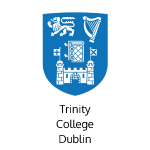Study Dentistry in Ireland
Students from Canada, the United States and other Non-European Union (EU) regions may apply to Dental Schools in Ireland and Northern Ireland via the Atlantic Bridge Program.
Every year, students commence the study of Dentistry via the Atlantic Bridge Program at Trinity College Dublin (TCD), University College Cork (UCC), Royal College of Surgeons in Ireland (RCSI)**, and Queen’s University, Belfast (QUB). The Atlantic Bridge Program streamlines the application process so students can apply to all four Dental programs using one common application and only one set of documents (transcripts, letters of reference, etc.).
Important Note: Mutual Recognition Agreement (MRA)
The Reciprocity Agreement between the Commission on Dental Accreditation of Canada (CDAC) and the Dental Council of Ireland was signed on December 5th, 2012. Under this agreement, the CDAC and the Dental Council of Ireland agree that each party recognizes the accreditation standards and policies of the other party as being equivalent to its own. There are twelve dental programs covered under this agreement, ten in Canada and two in Ireland (University College Cork and Trinity College Dublin).
Students who graduate from University College Cork (UCC) or Trinity College Dublin (TCD) after December 5th, 2012 will be accepted for licensing in Canada as graduates of an accredited dental educational program and do not need to meet other educational requirements typically required of graduates of non-Canadian Dental schools.
Any student who is enrolled in an accredited program at the time of the MRA being terminated, and proceeds to successfully complete said program, shall be considered to have graduated from an accredited program and shall subsequently benefit from the provisions of the MRA.
Note: Queen’s University Belfast is not a participant in the reciprocity agreement between the Commission on Dental Accreditation of Canada (CDAC) and the Dental Council of Ireland. This Reciprocity Agreement does not therefore include graduates from Queen’s University Belfast
**Please contact Atlantic Bridge for further information about the accreditation process with regards to RCSI.
Students who are eligible for EU tuition fees must apply via the Central Applications Office. For further information on eligibility for EU tuition fees, please click here.
Admissions Committees
The Admissions Committees consider every application individually and on its own merits, taking into account the degree of difficulty involved in the undergraduate degree or high school curriculum, the competitiveness of the school, course load taken by the applicant, and a number of other factors. Students are expected to present high marks in Chemistry and Biology as the application process is competitive. Candidates are also required to present a Letter of Recommendation from a practicing dentist or dental professional.
Entry Requirements
University College Cork and Queen’s University Belfast conduct online interviews as part of their selection process. The Royal College of Surgeons in Ireland conducts in-person interviews in Canada as part of their selection process. Interviews are not required for those applying to Trinity College Dublin.
Applicants who hold (or expect to hold by August of the year of entry) an undergraduate degree with a significant science component, including courses in Chemistry and Biology, may apply to the programs listed below. For specific entry requirements, please click on the link for each school.
- 5 Year Dentistry – University College Cork
- 5 Year Dentistry – Trinity College Dublin
- 5 Year Dentistry – Royal College of Surgeons in Ireland
- 5 Year Dentistry – Queen’s University Belfast*
*Queen’s University Belfast will only assess applications completed with high school transcripts by January 31st, 2026.
Please Note: Candidates are also required to present a Letter of Recommendation from a practicing dentist or dental professional.
Students who are presenting an IB Diploma may apply to the following 5-Year programs. For specific entry requirements, please click on the link for each school.
- 5 Year Dentistry – Royal College of Surgeons in Ireland
Students presenting an IB diploma may also apply to the 5 Year Dentistry program at Queen’s University Belfast* which requires only a completed high diploma.
*Queen’s University Belfast will only assess applications completed with high school transcripts by January 31st, 2026.
Please Note: Candidates are also required to present a Letter of Recommendation from a practicing dentist or dental professional.
Candidates applying directly from high school and high school graduates who have taken college/university-level courses, but who will not have an undergraduate degree by September of the year of entry, may apply to the following program. For specific entry requirements, please click on the link for the school.
- 5 Year Dentistry – Queen’s University Belfast*
*Queen’s University Belfast will only assess applications completed with high school transcripts by January 31st, 2026.
Please Note: Candidates are also required to present a Letter of Recommendation from a practicing dentist or dental professional.
Dentistry Schools
Within this section are overviews of the four dental schools which annually admit full complements of North American students, and links to their respective websites.
Irish Dentistry Curricula
The dental curriculum focuses on teaching the most up-to-date evidence-based skills to future dentistry practitioners. The course takes an evidence-based and student centered approach to learning, so that students quickly recognize the need to treat patients using the most robust scientific evidence and the importance of being a highly motivated, independent learner. Students are introduced to patients at the earliest opportunity and are expected to make the care of their patients their first concern at all times. You will develop clinical knowledge and skill in areas such as Oral Medicine, Orthodontics, Periodontology, Anesthetics and Oral Surgery. A detailed description of each program is available from the website of each school
The aim of the dental degree program is to educate and train dental students who, upon graduation are capable of carrying out the independent practice of all facets of dentistry as appropriate for adults, children, at least to the primary care level, including: oral diagnosis, restoration, periodontology, orthodontics, oral surgery, oral medicine and pathology, and special care dentistry within the context of prevention and health promotion.
Practicing in the USA & Canada
The dental degrees awarded are recognized by the dental licensing authorities in the United States, Canada and the European Union. However, you should check with your national and state/provincial licensing authorities for specific details on applicable licensing procedures and additional training that may be required of foreign-trained dentists.
Find out MoreFinancial Aid
North American students attending dental schools usually make use of available financial aid to cover the costs of their training.
The United States
Students from the United States are eligible for Federal Direct and PLUS Loans up to the cost of attendance each year.
Canada
Students from Canada can utilize a Student Line Of Credit for Professional Students, and the Canada Student Loan Program.
Moving to Ireland
Lets go








